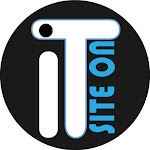Introduction:
In today's interconnected world, technology plays a crucial role in both positive and negative aspects of our lives. While some individuals utilize their technical skills for ethical purposes like cybersecurity and safeguarding digital systems, others may exploit vulnerabilities for malicious activities. In this article, we will explore the fascinating realm of hacker gadgets—tools and devices that empower individuals with technical expertise to assess and secure computer systems, but always with the emphasis on responsible and ethical use.
WiFi Pineapple: Unleashing the Power of Connectivity Imagine a device capable of penetrating the invisible realm of Wi-Fi networks. The WiFi Pineapple, a widely known hacking tool, serves as a gateway to conducting Man-in-the-Middle (MITM) attacks. By intercepting and redirecting network traffic, ethical hackers utilize this gadget to identify vulnerabilities, reinforce security measures, and safeguard sensitive information from potential threats.
USB Rubber Ducky: Automation with Precision In the realm of hacking, efficiency and automation are key. Enter the USB Rubber Ducky—a programmable device that effortlessly emulates a keyboard. With pre-configured commands executed rapidly, this gadget allows ethical hackers to test and fortify computer systems, identify potential weaknesses, and simulate real-world attack scenarios to enhance cybersecurity protocols.
LAN Turtle: Penetration Testing at Your Fingertips The LAN Turtle, a compact and discreet network penetration testing device, exemplifies the covert nature of modern hacking gadgets. Designed to be easily plugged into a target network, this inconspicuous tool provides ethical hackers with remote access, enabling them to uncover vulnerabilities, identify security gaps, and implement robust countermeasures to fortify network defenses.
Raspberry Pi: A Versatile Companion for Ethical Hacking While primarily known for its versatility in DIY projects, the Raspberry Pi has emerged as a valuable ally for ethical hackers. This single-board computer can be customized with various software and tools, empowering hackers to conduct network scanning, password cracking, and the execution of specialized scripts—all in the pursuit of proactive cybersecurity measures.
Rubberhose: Safeguarding Sensitive Information Privacy and encryption are fundamental concerns in today's digital landscape. Rubberhose, a disk encryption system, takes this to another level with deniable encryption. This ingenious gadget enables users to create hidden volumes within encrypted partitions, protecting sensitive data while allowing them to deny the existence of hidden information—providing an added layer of security and peace of mind.
WiFi Deauther: Ensuring Network Resilience When it comes to assessing Wi-Fi network security, the WiFi Deauther serves as a portable device that plays a critical role. By sending deauthentication packets, ethical hackers leverage this gadget for security testing, network analysis, and troubleshooting. Its ability to disconnect devices from Wi-Fi networks sheds light on potential vulnerabilities and strengthens the overall resilience of wireless infrastructure.
Keyloggers: Ethical Use for Enhanced Security While keyloggers are often associated with malicious activities, their ethical application can strengthen security measures. Software or hardware-based, keyloggers capture keystrokes on a target computer, providing ethical hackers with insight into potential vulnerabilities. By capturing passwords and login credentials, they assist in vulnerability assessment and the development of robust defense mechanisms.
Conclusion: Hacker gadgets embody the essence of technological prowess and innovation, offering both opportunities and challenges in our digital landscape. As we delve into this realm, it is imperative to emphasize responsible and ethical use of technology. By utilizing these gadgets within legal boundaries, adhering to ethical frameworks, and promoting cybersecurity awareness, we can collectively fortify our digital infrastructure and create a safer online world for all.


